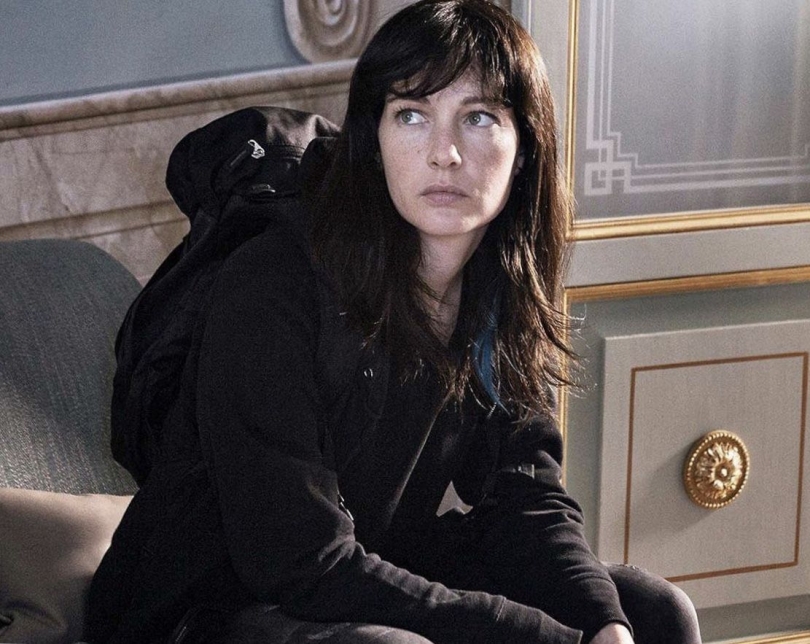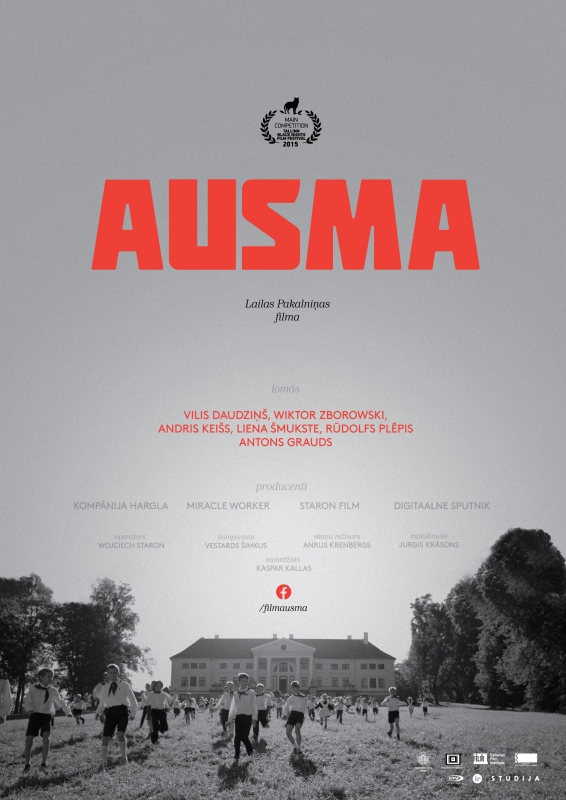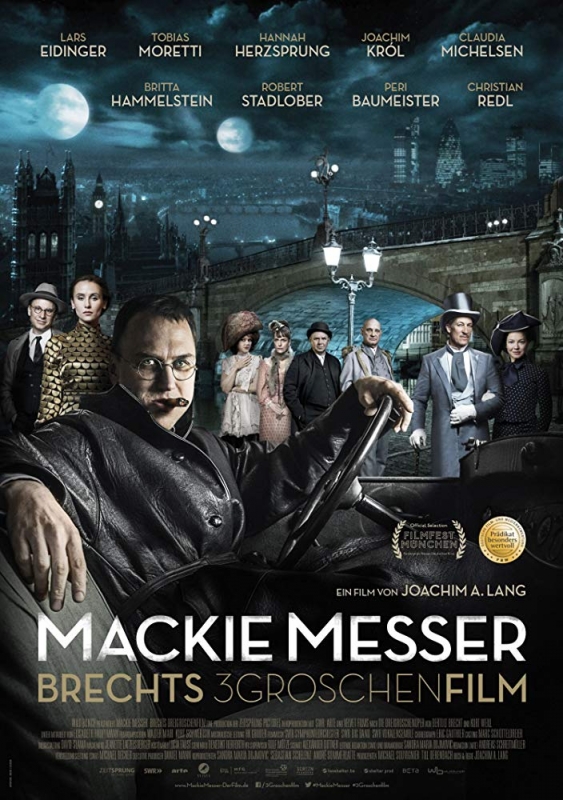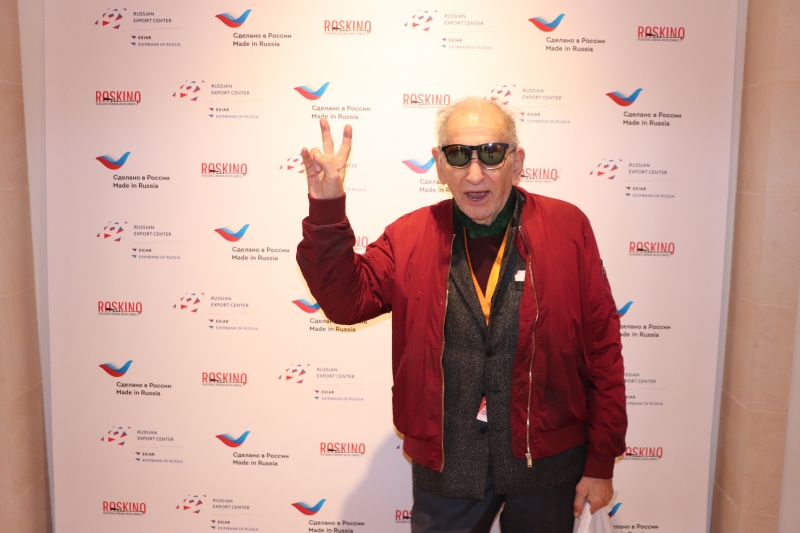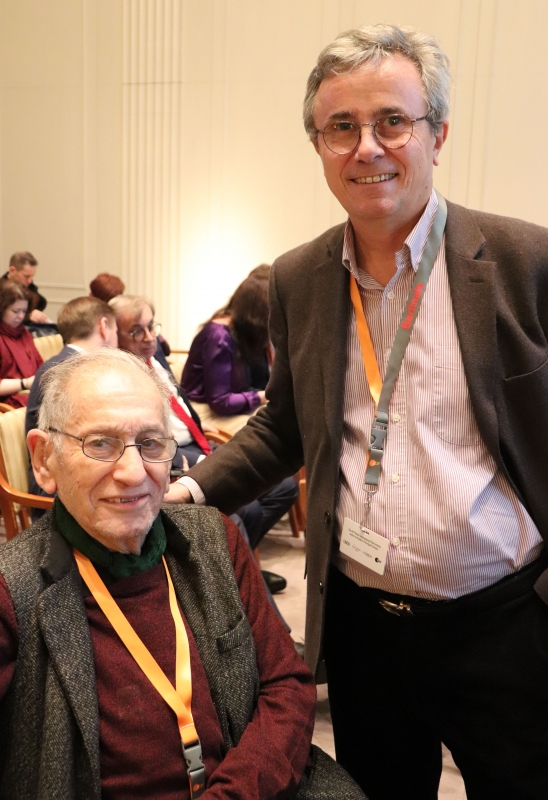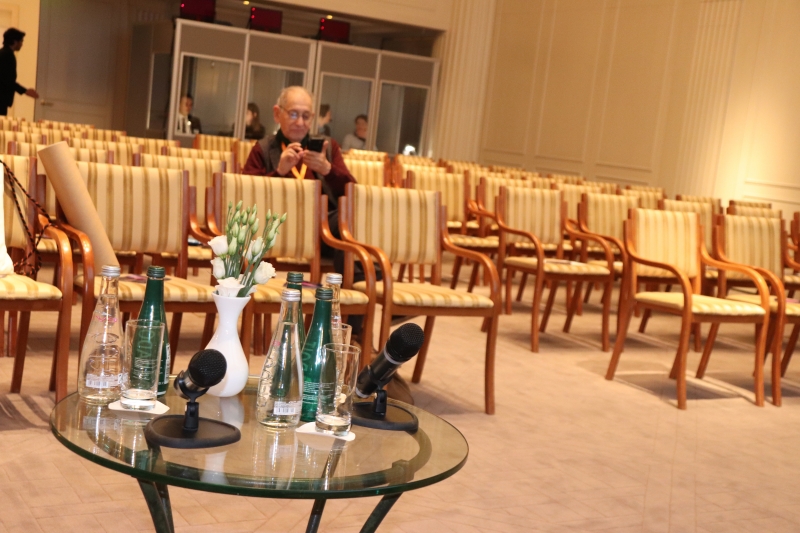|
|
||
|
Pro Tools
FILMFESTIVALS | 24/7 world wide coverageWelcome ! Enjoy the best of both worlds: Film & Festival News, exploring the best of the film festivals community. Launched in 1995, relentlessly connecting films to festivals, documenting and promoting festivals worldwide. Working on an upgrade soon. For collaboration, editorial contributions, or publicity, please send us an email here. User login |
Tbilisi Film Festival, Getaway Day, Four films in Four languagesThe awards ceremony and closing gala was held on Saturday night but Sunday was a festival bonus day with many repeat screenings to help harried film fans catch up on some entries they might have missed because of the vicissitudes of screening schedules. I had a banner final day picking up on four key films from four countries in four different languages; to wit, Polish, Italian, Latvian, and German.
The Polish film Cold War (Zimno Wojna) by Pawel Pawlikowski in the Forum of European film section turned out to be by far the best film of the entire week. Shot in classic black and white in a steady manner that had class written all over it this is a troubled love story set in the Communist Poland of the dreary fifties and the upbeat Paris of the time to which the lovers escape hoping to embrace the seeming freedom of the west. A handsome musician, Wiktor, discovers a talented blonde singer, Zula, from a small town but skips out illegally when he sees the chance and heads for Paris. He is pretty successful leading a band there and the girl joins him. She is also a hit as a club singer but she hates the phoniness of life in Paris and wants to go back to Poland. The two are passionately in love but temperamentally mismatched so after a lovers clash she does go back. Wiktor soon realizes he can't live without her so he too returns to Poland but is put in jail for having left illegally. Strings are pulled and his sentence is reduced. When he gets out he goes with Zula to her hometown where in the local church without benefit of a priest they stage their own marriage until death do is part. A simple love story but so well told and played that it is gripping from start to finish. Cold War was entered in competition at Cannes and Pawlikowski was awarded the best director prize. It will also be the Polish Oscar entry in February. Singer and actress Joanna Kulig is a blonde bombshell of the kind one can't wait to see more of.
The next film, Nome di Donna (Name of a Woman);from Country in Focus, Italy, is also cleanly filmed in classic style, this time in color, and also features a striking actress, Cristina Capotondi. In the film she is Nina, a beautiful single mother with a ten year old daughter who takes a job as an attendant in a prestigious retirement home for wealthy women in the countryside near Milan. A perfect job for her but the catch is that the pompous head of the place is a serial molester of the various women working under him and expects all to cater to his lechery. Nina refuses which upsets the applecart for all who are willing to go along with the program and finally leads to a court case indicting both the director and the local priest in cahoots with him for improper sexual harassment. With abuse of position for sexual gain very much in the air these days this pictures does not contribute anything original to the mix but is comfortably familiar with an excellent cast. One of the old ladies is a most charming ex actress who fantasizes about making a comeback with Colin Firth. In one scene we see Colin on her personal computer screen. An odd crossover from the festival's closing film The Happy Prince the night before in which Firth has a major role. The charming old lady is old time actress Adriana Asti who at 87 steals every scene she's in. Director is veteran Marco Tullio Giordana, 77, with a long filmography notable for Who Killed Pasolini, 1995.
Cristina Capotondi, a strong presence in Nome di Donna
This was followed by the Latvian film AUSMA (Dawn) by Laila Pakalnina.
Pakalnina (56) made a stunning debut in 1998 with The Shoe, a lightly amusing satire of Russian Cold War stupidity and quickly established herself as one of the leading directors along the Baltic shores. Two decades later she is again sniping away at the Cold War Russians who occupied her country for over 40 years, this time however, with a much heavier hand. Dawn is the name of a Soviet collective farm where a young boy whose loyalty to the regime overrides family loyalty denounces his own father to the authorities as an enemy of the agricultural cooperative. The father will have to take revenge and kill his own son. As in the Pawlikowski film this is shot in black and white but whereas his film is slow and almost stately this one is filled with jarring fast and furious in your face images and a roaring sound track which I found hard to take and finally felt too bludgeoned to sit it out. In addition to five features Pakalnina has made 26 documentaries many acclaimed prize winners. She is probably the only major film director who is also a marathon runner. This is a Latvian lady with stamina but I didn't have the stamina to watch Dawn until the bitter end.
The fourth film of the day, one of the most popular films of the week, was "Mack the Knife, Brecht's Threepenny Film" , (original title "Dreigroschenfilm"). Extremely colorful and energetic, part musical and part drama commenting on the musical and the musical numbers commenting on the drama as well, this is an ingenious mix of genres focusing on Brecht himself and his refusal to capitalize on the runaway success of his Dreigroschen Opera and make a pleasant but meaningless film from it. All this set against the rise of Naziism in the early thirties. Brecht is stoically interpreted by actor Lars Eidinger with a cigar constantly in his mouth à la Sam Fuller, and he will not get pushed around by the film producers who are determined to buy him out. The film was, of course, never made -- which is the reason that this film was made! The musical sections are dominated by Austrian actor Tobias Moretti as central operetta figure Mack the Knife in a magnificently cool getup and high hat. His nemesis "Peachum" who runs a school for beggars is played by top German actor Joachim Król. All in all this is the flashy resurrection of one of the most popular operettas of the early part of the twentieth century. The Threepenny musical Opera ran in New York well into the fifties and the title song, Mack the Knife, became an immortal standard around the world. <Ja der Haifisch, der hat Zähne> -- Like the shark of the song, this film has plenty of teeth and enough to chew on for several viewings. For myself it brought the week to a perfect closure on Getway Day.
12.12.2018 | ALEX FARBA's blog Cat. : FILM
|
LinksThe Bulletin Board > The Bulletin Board Blog Following News Interview with EFM (Berlin) Director
Interview with IFTA Chairman (AFM)
Interview with Cannes Marche du Film Director
Filmfestivals.com dailies live coverage from > Live from India
Useful links for the indies: > Big files transfer
+ SUBSCRIBE to the weekly Newsletter Deals+ Special offers and discounts from filmfestivals.com Selected fun offers
> Bonus Casino
User imagesAbout ALEX FARBAThe Editor |



















